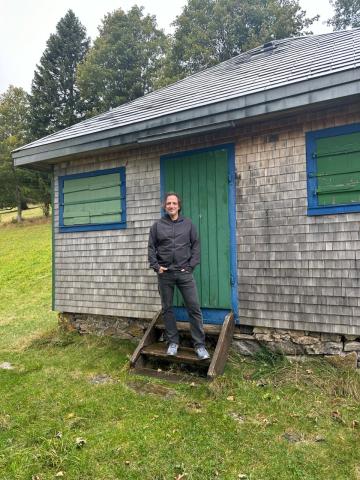
Ph.D. in Germanics, University of Washington
M.A. in German, University of California at Davis
B.A. in German and Spanish, Washington College
My research interests generally encompass the intersections between philosophy and literature from the late eighteenth through the twentieth century. My main focus lately has been in the interdisciplinary realm of ecocriticism, where I have been dealing with German, North American, and Scandinavian writers, philosophers, and naturalists. I have recently finished a monograph manuscript titled German Literary and Philosophical Ecologies: Idealism, Realism, Fascism, Bioregionalism, which examines conceptions of nature in Fichte, Hölderlin, Stifter, Heidegger, and the Norwegian philosopher Arne Næss. I expect it to be published sometime in 2026.
Some of the courses I have taught include:
- Nature Philosophy and Environmental Literature in a Global Context
- Conceptions of Nature from German Idealism to the Greens
- Realism, Naturalism, Modernism: Prose from Stifter to Rilke
- Geschichte und Geschichten: German History through Literature
- Death in German Literature and Philosophy
- Germanophone Nobel Prize-Winners
- Nietzsche and German Literature
- Nietzsche and Dostoevsky
- German Existentialism
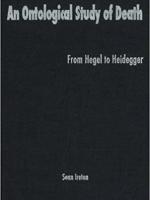
An Ontological Study of Death: From Hegel to Heidegger. Pittsburgh: Duquesne University Press, 2007. 326 pp.
Examines interpretations of death by Hegel, Hölderlin, Nietzsche, Rilke, and Heidegger. Also incorporates the ideas of several modern French philosophers, including Kojève, Sartre, and Foucault. Further places these literary and philosophical views within the socio-medical context of contemporary thanatology.
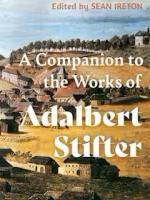
A Companion to the Works of Adalbert Stifter. Edited by Sean Ireton. Rochester: Camden House, 2025. 345 pp.
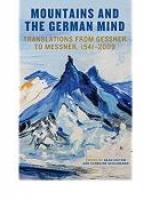
Mountains and the German Mind: Translations from Gessner to Messner, 1541-2009. Co-edited with Caroline Schaumann. Rochester: Camden House, 2020. 361 pp.
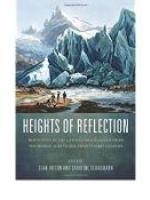
Heights of Reflection: Mountains in the German Imagination from the Middle Ages to the Twenty-First Century. Co-edited with Caroline Schaumann. Rochester: Camden House, 2012. 395 pp.
Book Chapters
"Introduction: Stifter's Life and Works." In A Companion to the Works of Adalbert Stifter. Edited by Sean Ireton. Rochester: Camden House, 2025. 1-33. (Forthcoming.)
“Stifter's Bavarian-Bohemian Bioregionalism.” In A Companion to the Works of Adalbert Stifter. Edited by Sean Ireton. Rochester: Camden House, 2025. 294-322. (Forthcoming.)
“Toward a Continuity of Alpinism in Antiquity, Premodernity, and Modernity: Josias Simler’s De Alpibus Commentarius (1574) and W.A.B. Coolidge’s French Translation from 1904.” In Mountain Dialogues from Antiquity to Modernity. Edited by Dawn Hollis and Jason König. London: Bloomsbury, 2021. 73-87.
“Introduction -- The Changing Mountain Discourses: A Germanophone Perspective.” (Coauthored with Caroline Schaumann.) In Mountains and the German Mind: Translations from Gessner to Messner, 1541-2009. Edited by Sean Ireton and Caroline Schaumann. Rochester: Camden House, 2020. 1-20.
“Hermann von Barth, From the Northern Limestone Alps,” translated excerpt and critical introduction. In Mountains and the German Mind: Translations from Gessner to Messner, 1541-2009. Edited by Sean Ireton and Caroline Schaumann. Rochester: Camden House, 2020. 146-73.
“Adalbert Stifter and the Gentle Anthropocene.” In Readings in the Anthropocene: The Environmental Humanities, German Studies, and Beyond. Edited by Sabine Wilke. New York: Bloomsbury, 2017. 195-221.
“National Invective and Environmental Exploitation in Thomas Bernhard’s Frost.” In German Ecocriticism in the Anthropocene. Edited by Caroline Schaumann and Heather Sullivan. New York: Palgrave Macmillan, 2017. 205-27.
“Geology, Mountaineering, and Self-Formation in Adalbert Stifter’s Der Nachsommer.” In Heights of Reflection: Mountains in the German Imagination from the Middle Ages to the Twenty-First Century. Edited by Sean Ireton and Caroline Schaumann. Rochester: Camden House, 2012. 193-209.
“Introduction -- The Meaning of Mountains: Geology, History, Culture.” (Coauthored with Caroline Schaumann.) In Heights of Reflection: Mountains in the German Imagination from the Middle Ages to the Twenty-First Century. Edited by Sean Ireton and Caroline Schaumann. Rochester: Camden House, 2012. 1-19.
Journal Articles
“Self-Realization beyond the Human: Arne Næss and Norwegian Deep Ecology.” EuropeNow 48 (November 2021). (Monthly online journal published by the Council for European Studies at Columbia University.)
“Dialektik der Erschließung: The German-Austrian Alps between Exploration and Exploitation.” Humanities: An Open Access Journal 10, no. 1: 17 (2021). Special issue on "Environmental Imagination and German Culture." (https://doi.org/10.3390/h10010017)
“Purity and Pollution: German Texts, American Contexts.” Introductory essay in Literatur für Leser 37.2 (2014): 77-82. Special issue on “Verschmutzung/Pollution.”
“Hölderlin’s Philosophy of Nature in Hyperion: Monism, Pantheism, and Proto-Ecology.” Literatur für Leser 35.3 (2012): 127-45. Special Issue on “Literatur und Umwelt.”
“Between Dirty and Disruptive Nature: Adalbert Stifter in the Context of Nineteenth-Century American Environmental Literature.” Colloquia Germanica: Internationale Zeitschrift für Germanistik 44.2 (2011): 149-71. Special Issue on “Dirty Nature.”
“Nature as Therapy: Case Studies from Austria (Adalbert Stifter) and North America (Doug Peacock).” Pacific Coast Philology 46.2 (2011): 122-38. Special Issue on “Literature, Culture, and the Environment.”
“Lines and Crimes of Demarcation: Mathematizing Nature in Heidegger, Pynchon, and Kehlmann.” Comparative Literature 63.2 (2011): 142-60.
“Walden in the Bohemian Forest: Adalbert Stifter’s Transcendental Ecocentrism in Der Hochwald,” Modern Austrian Literature 43.3 (2010): 1-18.
“‘Ich bin ein Wanderer und ein Bergsteiger’ –– Nietzsche and Zarathustra in the Mountains.” Colloquia Germanica: Internationale Zeitschrift für Germanistik 42 (2009): 193-212. Special Issue on “Mountains in the German Cultural Imagination.”
“Between Autobiography and Fiction: Thomas Mann’s Die Entstehung des Doktor Faustus: Roman eines Romans,” Seminar: A Journal of Germanic Studies 44 (2008): 210-25.
“Wunden/Wunder: On the Romantic Function of Blood and Wounds in the Later Brentano,” German Studies Review 30 (2007): 597-610.
“Die Aufzeichnung der Memoria in Thomas Manns Buddenbrooks und Der Erwählte,” The German Quarterly 76 (2003): 183-94.
“The Problem of Language in Nietzsche’s Ueber Wahrheit und Lüge im aussermoralischen Sinne and Fontane’s Der Stechlin,” Colloquia Germanica: Internationale Zeitschrift für Germanistik 35 (2002): 239-61.
“Heinrich Manns Auseinandersetzung mit dem Haß: Eine Analyse der Henri Quatre-Romane im Rahmen der exilbedingten Haßliteratur,” Orbis litterarum: International Review of Literary Studies 57 (2002): 204-21
“Brechts ‘Zertrümmerung’ von Heidegger: Das Badener Lehrstück vom Einverständnis als mögliche Kritik an Sein und Zeit,” Das Brecht-Jahrbuch / The Brecht Yearbook 24 (1999): 293-309.
“Die Transformation zweier Gregors: Thomas Manns Der Erwählte und Kafkas Die Verwandlung,” Monatshefte für deutschen Unterricht, deutsche Sprache und Literatur 90 (1998): 34-48.
“Heidegger’s Ontological Analysis of Death and Its Prefiguration in Nietzsche,” Nietzsche-Studien 26 (1997): 405-20.